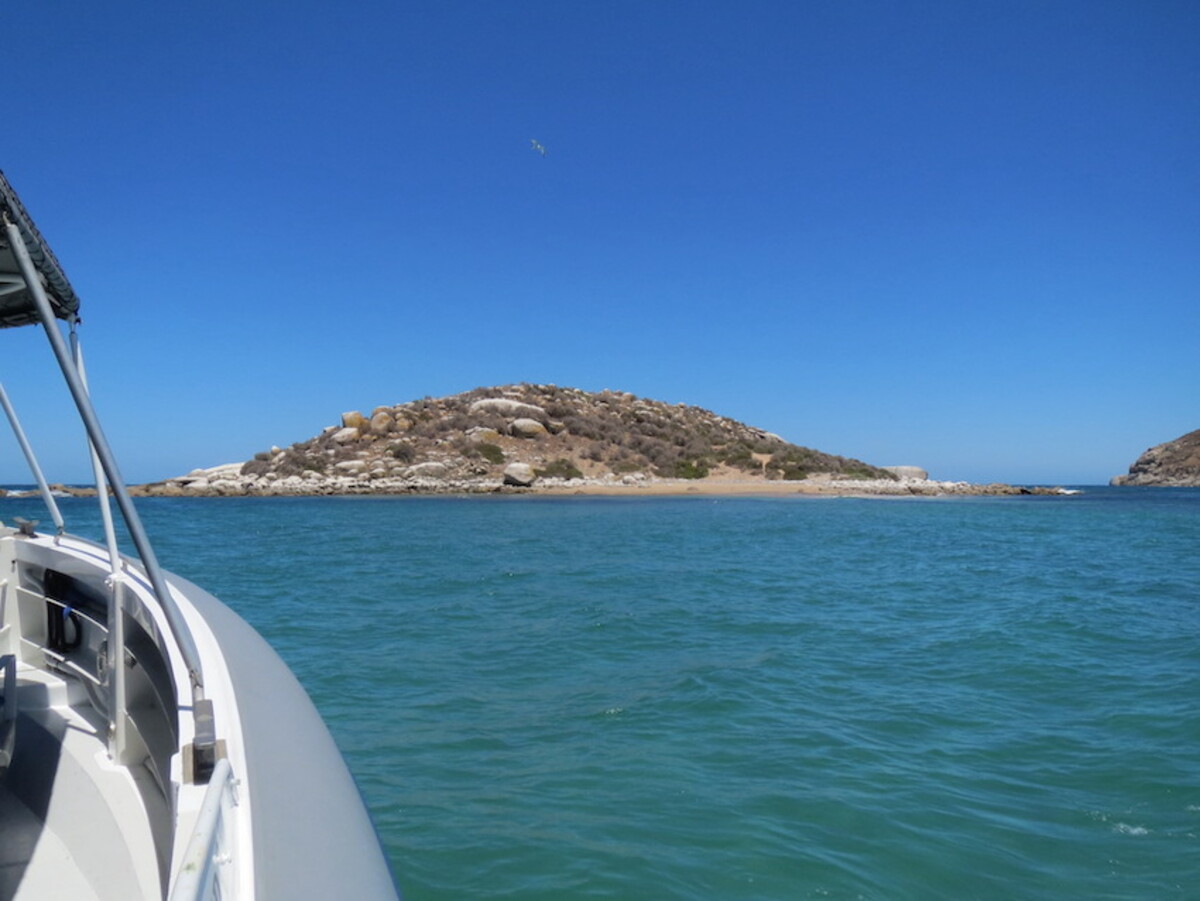Care for the coastline and marine parks
Julia Beckett
05 January 2025, 8:09 PM
 The public is being asked to avoid Wright Island in Encounter Bay this month to protect its nesting birds.
The public is being asked to avoid Wright Island in Encounter Bay this month to protect its nesting birds.Visitors to South Australia’s national parks are encouraged to conserve the coastline to ensure they enhance their experience and safeguard the environment.
National Parks and Wildlife Service is raising awareness of the need to protect the state’s precious beaches as locals and tourists hit the road for summer holidays.
Fleurieu visitors and national park lovers should be aware of a current track upgrade in Deep Creek National Park and Wild South Coast Way on the Heysen Trail.
The Boat Harbour 4WD track will be undergoing upgrade and verge trimming works from until 24 January.
It will remain open for 4WD vehicles access during road works and public access to the Boat Harbor Beach and its walking trails will be maintained while works occur. Visitors should expect traffic delays during the upgrade while road works take place.
For further information contact National Parks and Wildlife Service SA – Deep Creek Park Office on 8598 0263.
The public is also being asked to restrict recreational use of Wright Island, in Encounter Bay until late January, due to impacts on the Crested Turns and Sooty Oystercatcher fledglings.
Restricted access will mitigate disturbance during the critical breeding stages of both species.
South Australia’s national parks are home to an abundance of native wildlife and vegetation, and include sites considered culturally significant to First Nations people.
Compliance will help better protect the state’s unique biodiversity, and minimise the effect on threatened species of animals, including nesting shorebirds, and plants.
Visitors are encouraged to:
- Leave no trace in parks by bringing garbage bags and taking home litter as bins are not available.
- Keep dogs – except assistance dogs – out of most parks for their own safety but also to minimise the risk to native wildlife, vegetation and other visitors.
- Use gas and liquid fuel fires – apart from on total fire ban days – rather than solid-fuel fires, which are not permitted in most parks.
- Drive on established roads or tracks and avoid unauthorised areas for the safety of all visitors, and to protect sensitive nature and the environment.
National Parks and Wildlife Service Regional Operations Director Stuart Paul says raising awareness will encourage visitors to protect our unique and beautiful coastline.
“Most visitors to our national parks and beaches behave appropriately and want to ensure they adhere to regulations,” he says.
“This reminder balances visitor enjoyment with safety and the shared responsibility that ensures our unique and valuable environments are sustainably managed.”
Visitors can use National Parks and Wildlife Service’s Find a Park tool to look for dog- friendly parks and establish where campfires are permitted.
Campers need to bring their own firewood, which must be free from dirt and weeds to avoid bringing pest species into parks. Collection of firewood within parks is prohibited.
Penalties apply for offences in national parks under the National Parks and Wildlife Act 1972.
Mr Paul says summer also provides a timely reminder for fishers to be aware of rules for marine parks, particularly the location of sanctuary zones.
“Marine parks sanctuary zones are like national parks in the sea and have a high level of protection due to their conservation value.
“Fishing in a marine parks sanctuary zone is no different to hunting in a national park. It interrupts the natural balance of the ecosystem.
“It is an offence to take or harm any plant or animal within these sanctuary zones, which means fishing is strictly prohibited.”
The maximum penalty for marine park sanctuary zone offences are a $100,000 fine or two years’ imprisonment.
There are numerous tools available to help fishers locate sanctuary zones, including www.marineparks.sa.gov.au and smartphone apps, including SA Fishing and Deckee.
For more information about South Australia’s parks and reserves, and to book, visit the website.